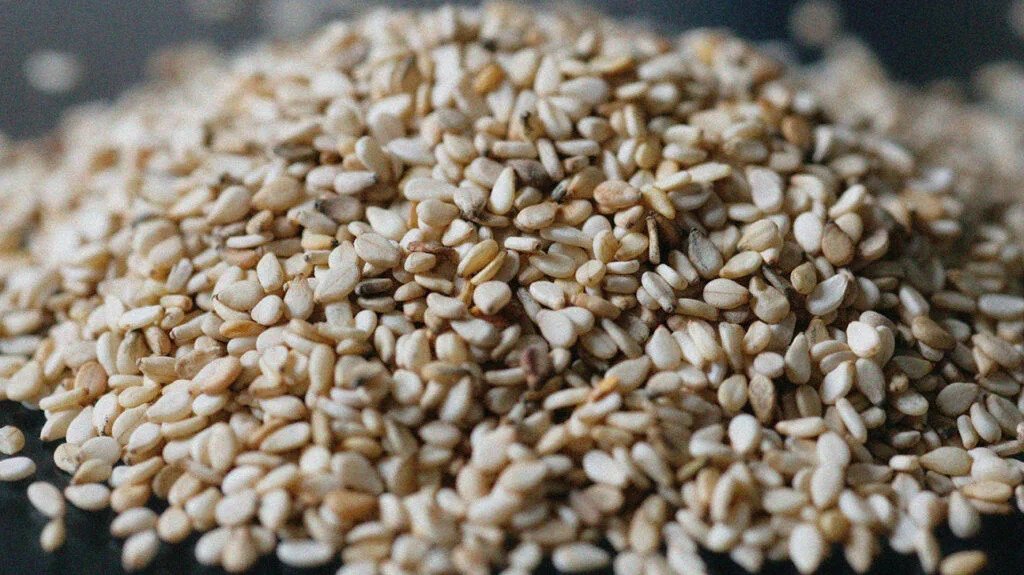Sesame Seeds, derived from the flowering plant Sesamum indicum, have been a staple in various cuisines for centuries. These tiny seeds pack a punch of flavor, texture, and nutrition, making them a versatile ingredient with numerous health benefits. In this comprehensive article, we will delve into the rich history, nutritional profile, culinary uses, and potential health benefits of sesame seeds.
History and Origin:
Sesame seeds have a long and storied history, dating back to ancient times. Believed to be one of the oldest oilseed crops cultivated by humanity, sesame seeds have been a vital part of various cultures, particularly in Asia and the Middle East. The plant is native to Africa and India, and its seeds were prized for their oil content and nutritional value.
Nutritional Profile:
Sesame seeds are a nutritional powerhouse, packed with essential nutrients that contribute to overall well-being. Here’s a breakdown of the key nutritional components found in sesame seeds:
-
Protein: Sesame seeds are a good source of plant-based protein, making them an excellent addition to vegetarian and vegan diets. The protein content in sesame seeds is higher than in many other seeds and nuts.
-
Healthy Fats: Sesame seeds are rich in healthy fats, including monounsaturated and polyunsaturated fats. The predominant fatty acid in sesame seeds is oleic acid, which is also found in olive oil and has been associated with heart health.
-
Fiber: These seeds are an excellent source of dietary fiber, which promotes digestive health and helps regulate blood sugar levels. Including sesame seeds in your diet can contribute to a healthy digestive system.
-
Vitamins and Minerals: Sesame seeds contain a variety of vitamins and minerals, including calcium, iron, magnesium, phosphorus, zinc, and vitamin B6. These nutrients play crucial roles in bone health, energy metabolism, and immune function.
Culinary Uses:
Sesame seeds are valued not only for their nutritional content but also for their distinctive flavor and versatility in the kitchen. Here are some popular culinary uses of sesame seeds:
-
Sesame Oil: Extracted from sesame seeds, sesame oil is a flavorful cooking oil widely used in Asian cuisines. It adds a distinct nutty aroma to stir-fries, dressings, and marinades.
-
Baking: Sesame seeds are a common ingredient in baking, enhancing the flavor and texture of bread, buns, and various pastries. Sesame seeds can be sprinkled on top of baked goods or incorporated into the dough.
-
Condiments: Tahini, a paste made from ground sesame seeds, is a key ingredient in Middle Eastern cuisine. It is used to make hummus, dressings, and sauces. Tahini adds a creamy texture and a rich, nutty flavor to dishes.
-
Snack Foods: Roasted sesame seeds make for a delicious and nutritious snack. They can be seasoned with various spices and used as toppings for salads, yogurt, or as part of trail mix.
Health Benefits:
The consumption of sesame seeds is associated with several health benefits, making them a valuable addition to a balanced diet. Some of the potential health benefits include:
-
Heart Health: The monounsaturated and polyunsaturated fats in sesame seeds have been linked to cardiovascular health. These fats may help lower bad cholesterol levels and reduce the risk of heart disease.
-
Bone Health: Sesame seeds are an excellent source of calcium, which is essential for maintaining strong and healthy bones. Regular consumption may contribute to preventing conditions like osteoporosis.
-
Antioxidant Properties: Sesame seeds contain antioxidants, including sesamin and sesamol, which help neutralize free radicals in the body. Antioxidants play a role in reducing inflammation and protecting cells from damage.
-
Blood Sugar Control: The fiber content in sesame seeds may aid in regulating blood sugar levels, making them a beneficial addition for individuals with diabetes or those looking to manage their blood glucose.
Conclusion:
Sesame Seeds, with their rich history, nutritional profile, and culinary versatility, deserve a place in every kitchen. Whether enjoyed as a topping, a condiment, or a cooking oil, sesame seeds offer a spectrum of flavors and health benefits. Including these tiny seeds in your diet can contribute to overall well-being and add a delightful dimension to your culinary creations. Experiment with different recipes, and unlock the potential of sesame seeds to elevate your meals to new heights of flavor and nutrition.





